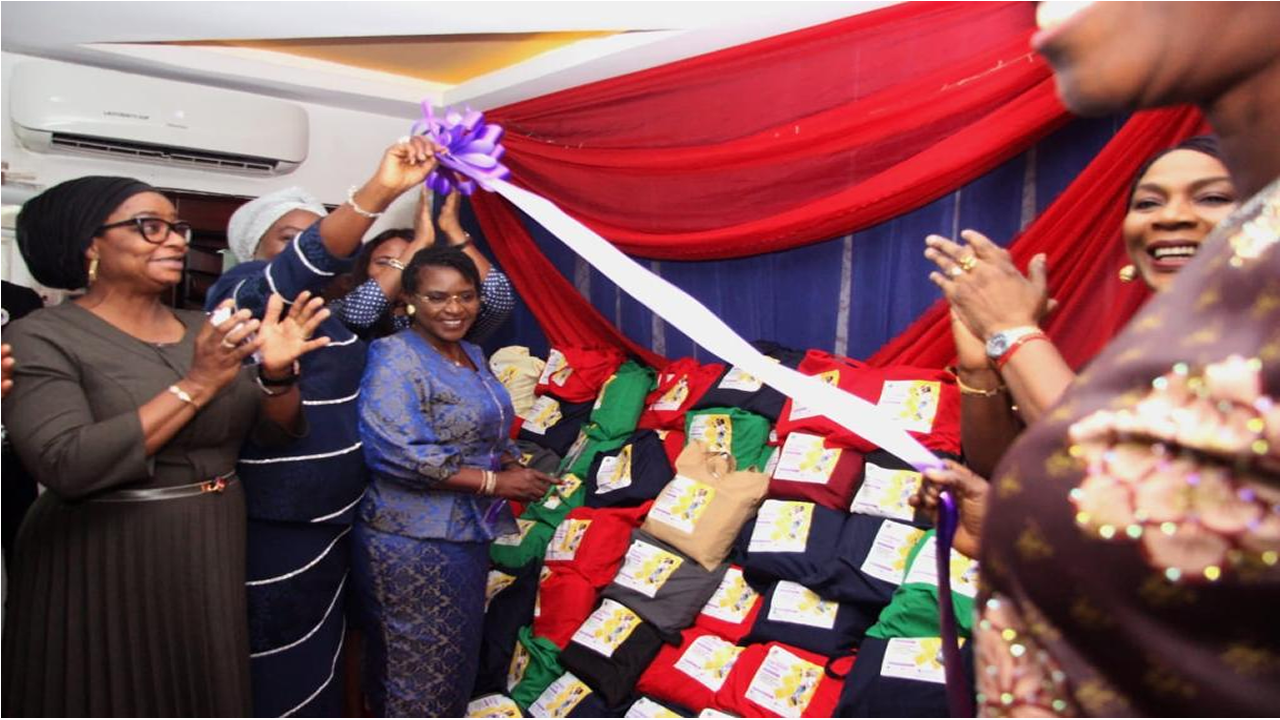As part of the effort towards addressing the challenges of period poverty among female residents, the Lagos State Office of Sustainable Development Goals and Investment has commenced the distribution of sanitary towels to female students in secondary schools across the state.
At the official distribution of sanitary towels to education districts in the State under the End Period Poverty Programme held at the Ministry of Local Government and Community Affairs, Alausa, Ikeja, the Permanent Secretary, Office of Sustainable Development Goals and Investment, Mrs. Abosede George acknowledged government shared aspiration towards ending poverty in all ramifications and promoting gender equality,
She described the initiative as a crucial step towards ensuring good health and wellbeing among the children in the state public schools, noting that poor menstrual health and hygiene undercuts fundamental rights including the right to work and go to school for women and girls who menstruate.
Acknowledging the urgency of the matter, Mrs George said the Office of SDGs and Investment launched a pad bank project to ensure that female students in public secondary schools have access to menstrual products.
“Access to menstrual products and proper sanitation facilities is not just a matter of convenience; it is a matter of fundamental rights and dignity. Poor menstrual health and hygiene limit the opportunities for our women and girls. When our children cannot afford proper menstrual hygiene items such as tampons and sanitary towels or are lacking adequate Water Sanitation and Hygiene (WASH) facilities to carry out proper menstrual hygiene, they are denied quality education”, she stated.
According to her, “It is not surprising that the United Nation set aside every 28th of May as the World Menstrual Hygiene Day to call the attention of policy makers to the burden experienced by girls and women as a result to their inability to access menstrual kits. By promoting proper menstrual hygiene, we empower young girls to focus on their education and personal development without the added burden of period poverty”.
She revealed that having taking cognizance of the complex challenges that are associated with period poverty, Governor Sanwo-Olu has continued to advocate for multi-dimensional approach to ensure the health and wellbeing of women and girls are prioritized and that they are more comfortable during their cycle.
While stating that the state government has been at the forefront of purposeful leadership in the effort towards the actualization key targets of United Nation 2030 Agenda, she explained that the present administration’s developmental policy through T.H.E.M.E.S Plus Agenda addresses key targets of the global ambition.
She acknowledged that to break the silence around menstruation and bequeath a more inclusive and equitable future, Mrs George urged all stakeholders, including private sector partners, non-governmental organizations, and civil society organizations, to support government in this important mission and create lasting change in improving the lives of thousands of young girls and women across our state.
“We must recognize the far-reaching impact of period poverty on the lives of women and girls and remain committed to finding holistic solutions to address this pressing issue. Tackling period poverty requires a comprehensive approach that goes beyond just providing menstrual products. It involves addressing the underlying factors that contribute to this problem, including access to proper sanitation facilities, education, and awareness”, she emphasized.
With a total of 4000 sanitary pads distributed to female students in the 6 Education Districts of the state, the Office pledged to continue the project with support from private sector, NGOs and the civil society organizations.


